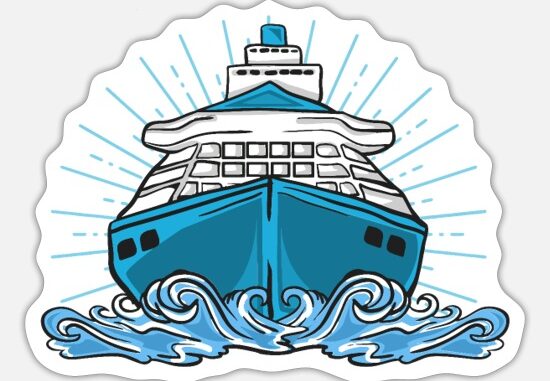
If you care about the planet, you might want to reconsider those plans to take a cruise on your next vacation. A recent study by the non-profit Friends of the Earth found that a cruise-goer emits eight times more greenhouse gas emissions per day than a land-based vacationer. And if you thought flying was bad for your carbon footprint, consider this: Even accounting for emissions from an equivalent-night hotel stay at a four-star hotels more in U.S., a passenger on a cruise ship emits about two times more carbon dioxide (CO2) than someone who flies and rents a hotel.
Cruise ships are a big part of the marine shipping sector that is responsible for close to three percent of global greenhouse gas emissions. No doubt, as much as these big boats might recycle or use less harmful cleaning spray in guest rooms, they are still big polluters. And the consumers that keep filling up more and bigger boats—the cruise industry is the fastest-growing sector in travel—are part of the problem, given that the federal government doesn’t seem interested in forcing the industry to clean itself up. The recycling and processing of on-board waste is used to be rare on cruise ships but nowadays are standard across the industry.
So, the ships should now use green tech like solar panels, exhaust scrubbers, cooking oil conversion systems, energy efficient appliances and LED lighting. And thus reducing and limiting engine noise so as not to disturb marine life while also steering clear of sensitive and/or marine breeding grounds. Another way cruise lines should go green by transitioning their fleets to run on liquified natural gas (LNG)—otherwise known as methane—as a way to cut back on CO2 emissions. But just because LNG burns cleaner than conventional marine petroleum products doesn’t mean it’s all that green. While this reduces direct air pollution emissions, the types of engines that cruise ships could use leak unburned methane into the atmosphere,. “This is called ‘methane slip’ and the life-cycle greenhouse gas emissions from these engines end up being higher than using low-sulfur marine gas oil.”
Cruise Lines International Association, a trade group representing 50 cruise companies, would like to see its members achieve net-zero carbon emissions by 2050. Environmental leaders argue that to reach this goal, the industry’s focus should be on zero-emissions energy technologies—next generation batteries, hydrogen fuel cells—not on swapping some carbon-emitting fuels for others slightly less harmful.
Some cruise lines now could be more eco-friendly than others, but as of now cruising is still one of the dirtiest vacation choices one can make. In lieu of government regulation to force the cruise industry to clean up its act—which doesn’t seem forthcoming—the best thing green groups can do is educate the public about the environmental perils of cruising in hopes that consumer pressure will force change. So, choose a wise, green and eco-friendly vacation.
Matter referenced from:
Taylor Connely, Cruise Industry Ripe for Greening, Feb., 2024, https://emagazine.com/cruise-industry-ripe-for-greening/
By: Dr. Bhawana Asnani.
Happy to see Reviews, Additions, Suggestions and Comments, further.

Leave a Reply
You must be logged in to post a comment.